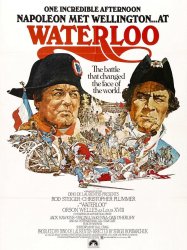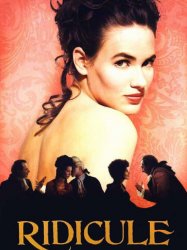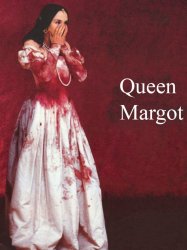Films with theme "Histoire de France", sorted by revenue

Diplomacy (2013)
, 1h28Directed by Volker Schlöndorff
Origin France
Genres Drama, War, Fantasy, Action, Historical
Themes Théâtre, Political films, Films based on plays, Histoire de France, L'Occupation allemande en France
Actors Niels Arestrup, Luke Evans, André Dussollier, Sarah Gadon, Dominic Cooper, Burghart Klaußner
As the Allied Forces move toward Paris, Adolf Hitler commands Gen Dietrich von Choltitz to destroy the city. Choltitz sends a team to demolish the city's famous land-marks and to overflow the Seine, led by Lt Hegger and advised by a captured Parisian engineer named Mr Lanvin. The land-marks being targeted include the Eiffel Tower, the Louvre, the Place de la Concorde, the Notre Dame de Paris.

Outside the Law (2010)
, 2h20Directed by Rachid Bouchareb
Origin Algerie
Genres Drama, War, Action, Historical
Themes Films set in Africa, French war films, La colonisation française, Films about terrorism, Algerian War films, Political films, Histoire de France
Actors Jamel Debbouze, Roschdy Zem, Sami Bouajila, Chafia Boudraa, Bernard Blancan, Samir Guesmi
À l'issue de la Seconde Guerre mondiale sur le front de l'Ouest, les manifestations pour l'indépendance de l'Algérie deviennent de plus en plus fréquentes en Algérie jusqu'aux massacres de Sétif, Guelma et Kherrata, dans le Constantinois, à partir du 8 mai 1945. Les scènes finales évoquent le massacre du 17 octobre 1961 à Paris.

Louis, the Child King (1993)
, 2h40Directed by Roger Planchon
Origin France
Genres Drama, War, Historical
Themes Politique, Political films, Histoire de France, Films about royalty
Actors Carmen Maura, Paolo Graziosi, Jocelyn Quivrin, Hervé Briaux, Brigitte Catillon, Régis Royer
Janvier 1649 : depuis la mort de son père, le jeune Louis XIV doit faire le dur apprentissage du pouvoir royal. Il doit faire face aux intrigues des grands du royaume qui mènent la Fronde, aux accords et aux trahisons de ses proches. Il est aidé en cela par sa mère Anne d'Autriche et par Mazarin.

The Buccaneer (1958)
, 2hDirected by Anthony Quinn, Cecil B. DeMille
Origin USA
Genres Drama, War, Adventure, Historical, Romance
Themes Seafaring films, Transport films, Pirate films, Political films, Histoire de France, Napoleonic Wars films
Actors Yul Brynner, Charles Boyer, Charlton Heston, Claire Bloom, Inger Stevens, Henry Hull
Installé à La Nouvelle-Orléans, le pirate français Jean Laffite contrôle toute la région, et tente de rester neutre dans le conflit qui oppose Américains et Britanniques. Mais son amour pour la fille du gouverneur Clairborne va l'obliger à prendre parti et à s'engager au côté du général américain Andrew Jackson...

Waterloo (1970)
, 2h14Directed by Serge Bondartchouk
Origin Italie
Genres Drama, War, Action, Historical
Themes Political films, Histoire de France, Napoleonic Wars films, French Revolution films
Actors Rod Steiger, Christopher Plummer, Orson Welles, Jack Hawkins, Virginia McKenna, Dan O'Herlihy
In 1814, after 20 years of military glory Napoleon Bonaparte, the Emperor of France, faces defeat at hands of the sixth coalition, the forces of Britain, Austria, Prussia and Russia. Facing certain defeat, Napoleon's marshals gather and demand that he abdicate. At first Napoleon violently refuses, but after hearing of the surrender of his last army he agrees.

Captain Horatio Hornblower (1951)
, 1h57Directed by Raoul Walsh
Origin USA
Genres Drama, War, Action, Adventure, Historical
Themes Seafaring films, Transport films, Pirate films, Political films, Histoire de France, Napoleonic Wars films, French Revolution films
Actors Gregory Peck, Virginia Mayo, Robert Beatty, Terence Morgan, James Robertson Justice, Moultrie Kelsall
In 1807, during the Napoleonic Wars, British Royal Navy Captain Horatio Hornblower (Gregory Peck) commands the 38-gun frigate HMS Lydia on a lengthy secret mission to Central America. He is to provide arms and support to a megalomaniac named Don Julian Alvarado, who is calling himself "El Supremo" or "The Almighty" (Alec Mango), in his rebellion against Spain, an ally of Britain's enemy France. As Hornblower observes to First Lieutenant Bush (Robert Beatty), "War breeds strange allies."

Ridicule (1996)
, 1h42Directed by Patrice Leconte
Origin France
Genres Drama, Comedy, Comedy-drama, Romance
Themes Medical-themed films, Politique, Films about disabilities, Political films, Sign-language films, Histoire de France, French Revolution films, Films about language and translation, Films about royalty
Actors Bernard Giraudeau, Charles Berling, Jean Rochefort, Fanny Ardant, Judith Godrèche, Bernard Dhéran
The film begins in 1783 with the Chevalier de Milletail (Carlo Brandt) visiting the elderly Monsieur de Blayac (Lucien Pascal), confined to his chair. He taunts him about his past prowess in wit and reminds him of how he humiliated him, naming him "Marquis de Clatterbang" when he fell over while dancing. He then urinates on the helpless old man.

Jefferson in Paris (1995)
, 2h19Directed by James Ivory
Origin France
Genres Drama, Biography, Comedy-drama, Historical, Romance
Themes Political films, Histoire de France, French Revolution films
Actors Nick Nolte, Greta Scacchi, Jean-Pierre Aumont, Simon Callow, Seth Gilliam, James Earl Jones
Set in the period 1784–1789, the film portrays Jefferson when he was US minister to France at Versailles before the French Revolution. French liberals and intellectuals hope he will lead them away from the corruption of the court of King Louis XVI and Marie-Antoinette and toward a more democratic form of government. Although deploring the poverty of the common people, he embraces the riches of French culture and civilization. It is his first time abroad, and he takes advantage of the opportunity to extend his knowledge of liberal arts and science while absorbing the refinements France has to offer.

Conquest (1937)
, 1h53Directed by Clarence Brown, Gustav Machatý
Origin USA
Genres Drama, Historical, Romance
Themes Political films, Films based on plays, Histoire de France, French Revolution films
Actors Greta Garbo, Charles Boyer, Reginald Owen, Alan Marshal, Henry Stephenson, Leif Erickson
Napoleon Bonaparte (Charles Boyer) launches an unsuccessful seduction of the Countess Marie Walewska (Greta Garbo), who is married to a much older man (Henry Stephenson), but she resists until convinced that giving in will save Poland. After her husband annuls their marriage and Napoleon divorces the Empress Josephine, the pair are free to formalize their happy relationship, but Napoleon shocks her by announcing his decision to wed the Archduchess Marie Louise of Austria for political reasons. While he doesn't expect it to impact his relationship with Marie, she leaves him, without ever telling him that she is expecting his child.

The Year 01 (1973)
, 1h27Directed by Jacques Doillon, Alain Resnais, Jean Rouch
Origin France
Genres Comedy, Action
Themes Films about anarchism, Politique, Political films, Histoire de France
Actors Daniel Auteuil, Josiane Balasko, Romain Bouteille, Isabelle de Botton, Madeleine Bouchez, Christian Clavier
The film narrates a utopian abandonment, consensual and festive of the market economy and high productivity. The population decides on a number of resolutions beginning with "We stop everything" and the second "After a total downtime will be revived—reluctantly—that the services and products including lack will prove intolerable. Probably: water to drink, electricity for reading at night, the TSF to say "This is not the end of the world, this is an 01, and now a page of Celestial Mechanics". The implementation of these resolutions is the first day of a new era, Year 01. The Year 01 is emblematic of the challenge of the 1970s and covers such diverse topics as ecology, negation of authority, free love, communal living, rejection of private property and labor.

Reunion in France (1942)
, 1h44Directed by Jules Dassin
Origin USA
Genres Drama, War, Romance
Themes Transport films, Aviation films, Political films, Disaster films, Films about aviation accidents or incidents, Histoire de France, L'Occupation allemande en France
Actors Joan Crawford, John Wayne, Philip Dorn, Reginald Owen, Albert Bassermann, John Carradine
1940 in Paris, Michele de la Becque (Joan Crawford) is a career woman in love with industrial designer Robert Cortot (Philip Dorn). Together they enjoy a luxurious lifestyle unfazed by the approach of World War II. After the Battle of France and subsequent German occupation, Michele discovers her lover is socializing with German officers and his plants are manufacturing weapons for them. She confronts him and he does not deny her evidence. She is outraged. She aids a downed American in the Eagle Squadron of the Royal Air Force bomber pilot Pat Talbot (John Wayne) from Pennsylvania and finds herself falling in love with him. Later, she discovers Cortot is turning out defective weapons for the Germans and organizing a French fighting force. Michele is happily reunited with Cortot.

Les Milles (1995)
, 1h43Directed by Sébastien Grall
Origin France
Genres Drama, War
Themes French war films, Prison films, Transport films, Rail transport films, Political films, Histoire de France, L'Occupation allemande en France
Actors Jean-Pierre Marielle, Kristin Scott Thomas, Ticky Holgado, Philippe Noiret, Rüdiger Vogler, François Berléand
Mai 1940. Juifs, communistes ou opposants au nazisme sont internés au camp des Milles, près d'Aix-en-Provence. Le commandant Perrochon dirige ce camp d'une main de fer. Mais pourtant, quand l'arrivée des nazis est annoncée, il ne peut se résoudre à leur livrer ses prisonniers et affrète secrètement un train pour les évacuer sur Bayonne.

Queen Margot (1994)
, 2h39Directed by Patrice Chéreau, Emmanuel Hamon, Jérôme Enrico
Origin France
Genres Drama, Historical, Romance
Themes Films about families, Politique, Films about sexuality, Political films, Histoire de France, Films about marriage, Films about royalty
Actors Isabelle Adjani, Daniel Auteuil, Jean-Hugues Anglade, Virna Lisi, Vincent Pérez, Dominique Blanc
During the late 16th century, Catholics and Protestant Huguenots are fighting over political control of France, which is ruled by the neurotic, hypochondriac King Charles IX (Jean-Hugues Anglade), and his mother, Catherine de' Medici (Virna Lisi), a scheming power player. Catherine decides to make an overture of goodwill by offering up her daughter Margot (Isabelle Adjani) in marriage to Henri de Bourbon (Daniel Auteuil), a prominent Huguenot and King of Navarre, although she also schemes to bring about the notorious St. Bartholomew's Day Massacre of 1572, when thousands of Protestants are slaughtered. The marriage goes forward but Margot, who does not love Henri, begins a passionate affair with the soldier La Môle (Vincent Pérez), also a Protestant from a well-to-do family. Murders by poisoning follow, as court intrigues multiply and Queen Catherine's villainous plotting to place her son the Duke of Anjou (Pascal Greggory) on the throne threatens the lives of La Môle, Margot and Henri of Navarre. A book with pages painted with arsenic is intended for Henri but instead causes the slow, agonizing death of King Charles. Henri escapes to Navarre and sends La Môle to fetch Margot, but Guise apprehends him. La Môle is beheaded in the Bastille before Margot can save him, and King Charles finally dies. Margot escapes carrying La Môle's embalmed head as Anjou is proclaimed King of France as Henry III.

Something in the Air (2012)
, 2h2Directed by Olivier Assayas
Origin France
Genres Drama, Historical, Romance
Themes Films about anarchism, Politique, Political films, Histoire de France
Actors Lola Créton, Clément Métayer, Bobbi Salvör Menuez, André Marcon, Félix de Givry, Johnny Flynn
During the 1970s a student named Gilles gets entangled in contemporary political turmoils although he would rather just be a creative artist. While torn between his solidarity to his friends and his personal ambitions he falls in love with Christine.

Diane (1956)
, 1h50Directed by David Miller
Origin USA
Genres Drama, Historical, Romance
Themes Political films, Histoire de France, Films about royalty
Actors Lana Turner, Pedro Armendáriz, Roger Moore, Marisa Pavan, Cedric Hardwicke, Torin Thatcher
The action is set in 16th-century France. Diane de Poitiers (Lana Turner) becomes the mistress of Prince Henri (Roger Moore), second in line to the throne. Their liaison continues through Henri's arranged marriage to the Italian Catherine de' Medici (Marisa Pavan). Unknown to Catherine, her Medici relations arrange the death of the Dauphin and Henri's ascent to the throne as King Henry II. The antagonism of the two women, abetted by Medici scheming, eventually results in the death of Henri. Catherine, now ruling as regent for her three young sons, banishes Diane but spares her rival's life in a gesture of mutual respect.
 Connection
Connection